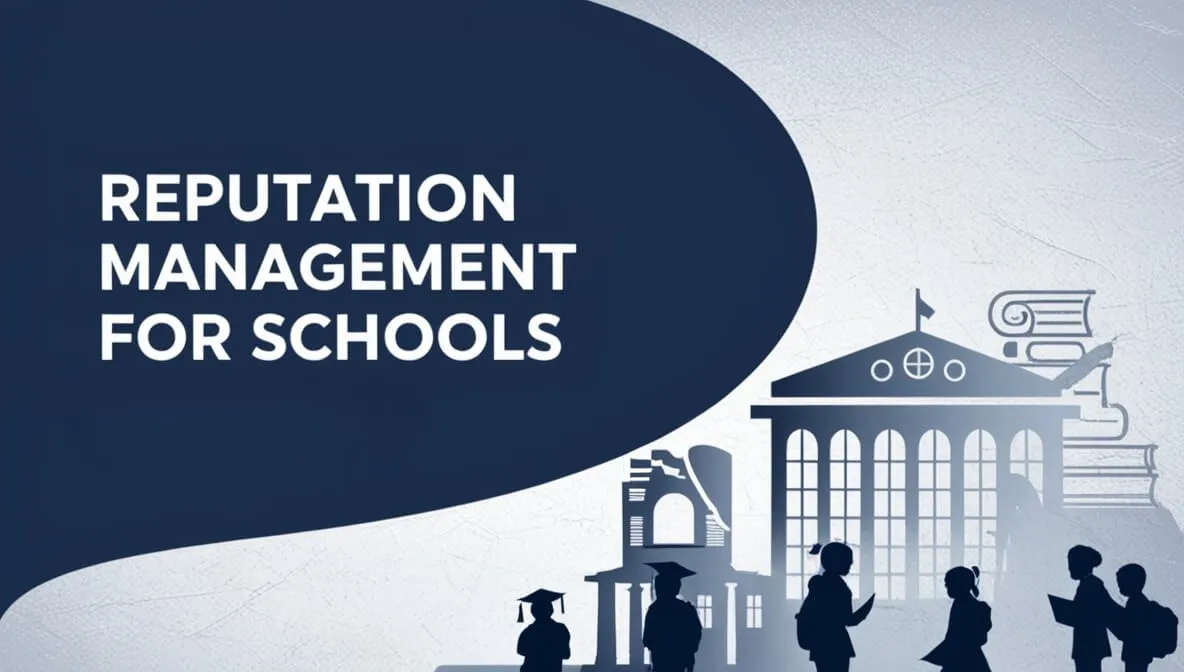Table of Contents
- Introduction
- Why Reputation Management for Schools Matters in 2025
- The Shift Towards Digital Reputation for Schools
- Key Strategies for Effective Reputation Management for Schools
- Benefits of Strong Reputation Management for Schools
- Role of Technology in Reputation Management for Schools
- Common Challenges in Reputation Management for Schools
- Best Practices for Reputation Management for Schools
- FAQs on Reputation Management for Schools
- Conclusion: Why Reputation Management for Schools is the Top Priority in 2025
Introduction
In 2025, reputation management for schools is no longer optional—it’s a necessity. With parents increasingly relying on online reviews, social media discussions, and digital word-of-mouth before enrolling their children, a school’s image can make or break admissions. The challenge? Negative feedback can spread faster than ever, and parents demand transparency, accountability, and results. The solution lies in a proactive approach: reputation management for schools supported by strong communication strategies, digital tools, and consistent value delivery.
Why Reputation Management for Schools Matters in 2025
Reputation management for schools is the foundation of trust. In the digital era, a single Google review or Facebook comment can influence dozens of prospective parents. Schools that prioritize their brand image stand out in an increasingly competitive educational landscape.
Key Reasons Schools Must Focus on Reputation Management:
- Parents compare schools based on reviews, ratings, and social proof.
- Transparency and trust drive higher student admissions.
- Digital reputation impacts long-term school credibility.
- Schools with a strong online presence gain media visibility.
The Shift Towards Digital Reputation for Schools
With more than 90% of parents researching schools online before applying, the shift towards school digital reputation is undeniable. Managing online reviews in education is now as critical as curriculum quality. Schools must adopt strategies that ensure positive visibility while addressing concerns promptly.
Example:
A coaching institute in Delhi improved its admission rate by 35% after actively engaging in reputation management by responding to reviews, highlighting student achievements, and showcasing testimonials.
Key Strategies for Effective Reputation Management for Schools
1. Monitoring Online Reviews and Feedback
Schools should continuously track platforms like Google, Facebook, and education-specific directories. Positive reviews should be highlighted, while negative feedback should be addressed quickly and professionally.
2. Building a Strong School Brand Image
A clear vision, mission, and consistent communication enhance credibility. Sharing success stories of students, showcasing teacher expertise, and maintaining transparency builds a powerful school brand image.
3. Leveraging Social Media for Reputation Management
Social media is no longer just for engagement—it’s a reputation driver. Regular posts about school activities, student projects, and community events create a positive digital footprint.
4. Managing Online Reviews in Education
Actively requesting feedback from satisfied parents and students can balance negative reviews. Schools must create a structured process to gather testimonials and highlight them on official platforms.
5. Education Reputation Strategy in 2025
A long-term strategy is essential:
- Define core values and communicate them.
- Invest in digital PR campaigns.
- Use SEO to rank for positive school stories.
- Encourage parent-student engagement online.
Benefits of Strong Reputation Management for Schools
- Increased admissions through positive online visibility.
- Stronger community trust and word-of-mouth marketing.
- Higher teacher satisfaction and retention rates.
- Positive media attention and partnerships.
Role of Technology in Reputation Management for Schools
AI-driven monitoring tools, automated review response systems, and sentiment analysis software are transforming how schools handle their digital reputation. Schools can now detect issues early and address them proactively.

Common Challenges in Reputation Management for Schools
- Negative viral content damaging credibility.
- Difficulty in encouraging positive reviews.
- Lack of awareness about digital monitoring tools.
- Over-reliance on traditional offline branding.
Best Practices for Reputation Management for Schools
- Train staff to handle digital communication.
- Develop a crisis management plan.
- Maintain transparency in all operations.
- Highlight academic and extracurricular achievements.
FAQs on Reputation Management for Schools
Q1. Why is reputation management for schools important in 2025?
Reputation management helps schools attract admissions, build trust with parents, and strengthen long-term credibility.
Q2. How can schools improve their digital reputation?
By actively managing online reviews, sharing student success stories, and engaging with parents on social media.
Q3. What role does school brand image play in admissions?
A strong school brand image enhances credibility, making parents more confident in their enrollment decisions.
Q4. How can schools manage negative online reviews?
Respond politely, address concerns, and highlight corrective actions to show commitment to improvement.
Q5. What is an effective education reputation strategy for 2025?
It includes proactive review management, digital PR, parent engagement, and consistent value communication.
Conclusion: Why Reputation Management for Schools is the Top Priority in 2025
In today’s digital-first world, reputation management for schools determines admission success, credibility, and trust. Schools that invest in monitoring, engagement, and proactive strategies will thrive in 2025. The time to act is now—schools must adopt education reputation strategies that ensure long-term growth and visibility.
Is your school ready to lead in 2025? Partner with Legacy EdTech to build a powerful digital reputation strategy tailored for schools and coaching institutes. Contact us today to strengthen your school’s brand image and admissions pipeline.







